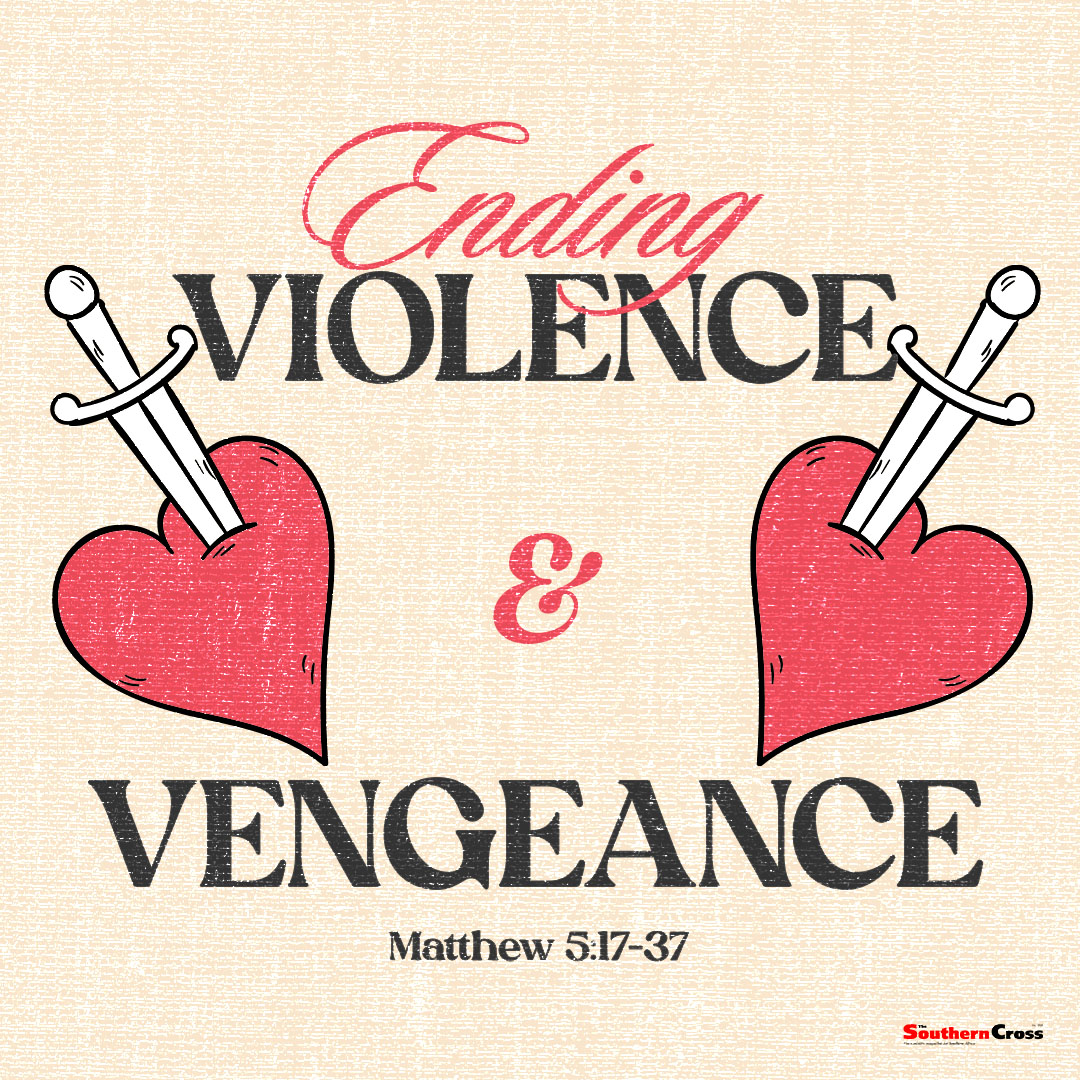Sixth Sunday Reflection: Ending Violence & Vengeance

Franciscan Reflections From The Hermitage – Sixth Sunday In Ordinary Time Year A – Ending Violence & Vengeance – Matthew 5:17-37
Listen to this reflection: https://www.spreaker.com/episode/52647572
So when you are offering your gift at the altar, if you remember that your brother or sister has something against you, leave your gift there before the altar and go; first be reconciled to your brother or sister, and then come and offer your gift. (Matthew 5:23-24)
Jesus extends the horizons of understanding beyond philosophy and human wisdom. Jesus accomplishes the demands of the law and institutes the new kingdom of God, here and now, with you and with me, each one of us as God’s child and as God’s friend. This is a new age, the new dispensation and the new Covenant of Love.
Beyond the horizons of the law, each family member is now valued beyond measure and no one is to be accounted as foolish, empty, of no account.. as worthless. In light of these new family ties, this bond of love moves us far beyond the demands of the law and the hurdles of oral tradition.
The interchanging of the kingdom of God for the kingdom of heaven in Matthew reflects the pious Jewish injunction against the use of God’s name. Jesus is teaching his disciples as he is teaching us, how to live within this new dispensation, this new covenant within the new age of reign of the kingdom of God.
This is not some escape plan for after our death, this is how we are to live in the world as God’s family and as brothers and sisters to each other. This is the reality and the truth of the Eucharist that we share, the body and blood of Christ, separate in each, yet one in all. God not only with us but in us, as we in turn become one in Christ’s Body. As soon as we can begin to see the Truth here, the Truth will be seen everywhere.
The vista of this new horizon that Jesus presents is as awesome as it can be disconcerting. The paradox of the cross has exposed the intentions of our hearts and the true nature of all violence.
Sacrifice and sacred violence are built into the very psyche of humanity as that commercial exchange of unblemished victim scapegoat on behalf of the collective group. The passion and death of Christ within this mould is often portrayed as the perfect sacrifice, being the pattern for our own lives, with the resurrection and glorification being seen as God’s seal of approval.
This is the blueprint for all religions of sacrifice and sacred violence since the earliest dawn of time. Jesus, the Christ breaks this mould to teach us a new way.
God has been walking with us through all this history, replacing human sacrifice as he saves the life of Isaac, ending the commercial exchange in animal sacrifice as Jesus frees the animals from the temple complex and then finally taking the place of the sacrificial lamb and the escaping goat (Scapegoat). Through the cross, the Incarnate Word of God, Jesus, became a scapegoat at the hands of sinful humanity to free us from the sin of scapegoating, shattering our concept of a vengeful God, and the foundational sins of rivalry with God and each other.
Without this relationship with God who is with us and in us… in every event of our lives, and his humanity as Jesus, we continue to be fearful of the terror of history and will return again and again to the trading floor and these foundational sins of rivalry with God and each other.
Judging others as lesser, as unworthy, opens the door to anger and violence. When this judgement and condemnation is placed within a religious and spiritual arena, it becomes the vilest form of abuse.
Let [the brothers] not be angry, for “whosoever is angry with his brother shall be in danger of the judgement. And whosoever shall say to his brother, Raca, shall be in danger of the council. And whosoever shall say, Thou fool, shall be in danger of hell fire.” And let them love one another, as the Lord says: “This is my commandment, that you love one another, as I have loved you.” And let them show their love by the works they do for each other, according as the Apostle says: “let us not love in word or in tongue, but in deed and in truth.” Let them “speak evil of no man,” nor murmur, nor detract others, for it is written: “Whisperers and detractors are hateful to God.” And let them be “gentle, showing all mildness toward all men (sic).” Let them not judge and not condemn, and, as the Lord says, let them not pay attention to the least sins of others, but rather let them recount their own in the bitterness of their soul. (FIRST RULE OF THE FRIARS MINOR Par 11)
- The Church Year and Advent - December 1, 2024
- Easter Sunday Reflection: The Way – Love Overcomes Violence & Death - March 29, 2024
- Palm Sunday Reflection: Re-Espousing And Anointing - March 22, 2024




